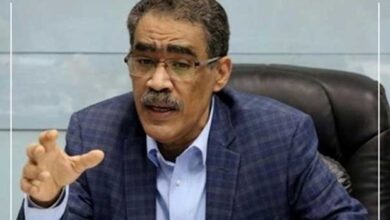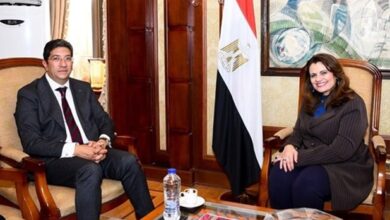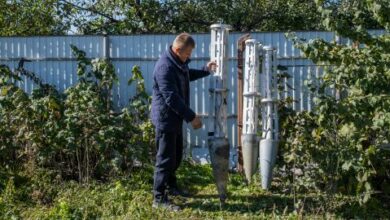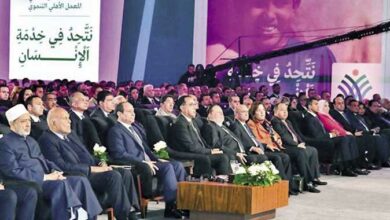The upcoming parliamentary elections scheduled for 28 November will not undergo international monitoring after the government declared that allowing such monitoring would undermine national sovereignty.
The government clarified its position last week when Ahmed Fathi Sorour, People’s Assembly speaker, declared that “foreign countries have no control over the elections because it is an internal affair.” His comments came during a symposium entitled “Globalization between Politics, Economy and Law.”
In an attempt to reassure voters, as well as the 5700 candidates registered for the parliamentary poll and the international community, the government pledged that the election will be fair, and that Egyptian civil society groups will be allowed to monitor the vote.
Local NGOs will be allowed to monitor, but within clear boundaries, as Sorour clearly explained: “If these NGOs give themselves more authority, they might constitute a threat to the sovereignty of the state as well.”
For about a month now, various NGOs have launched various trainings on monitoring the elections, dedicated to journalists and civil society members.
The Egyptian Organization for Human Rights (EOHR) has been providing its 1200 members throughout the country with legal materials and courses to ensure efficient monitoring and surveillance during the imminent poll. Hafez Abu Seada, the head of EOHR, explained that his organization gave its members materials on the international standards for fair elections published by two major foreign democratic institutions: the US-based National Democratic Institution (NDI) and the Swedish International Election Institute. “This material gives observers a clear idea of what transparency means in an election, plus it gives them advice on how to collect information on the ground and on how to distinguish legal from illegal practices,” Abu Seada explained.
Observers also are acquainted with the People’s Assembly legislation, through the “Participation Law” which explains the Egyptian legislation.
The observers, who will be in charge of touring ballot boxes to report fraud, are not numerous enough to ensure a presence at each polling station. This is why the NGO has chosen to observe specific constituencies that are expected to witness fierce struggle between ruling party candidates and the opposition.
“Most of our observers will be denied access into the counting stations, with very few exceptions; this is why they will mainly report on the behaviour of the people involved in the electoral process,” said Abu Seada. EOHR has joined up with 130 other NGOs in order to create an “Egyptian Coalition for Observing the Elections.”
These various NGOs, including five human rights groups, are scattered all over Egypt and will be observing the course of the poll, reporting major fraud.
The Cairo-based Andalus Institute for Tolerance and Anti-Violence Studies is also involved in the monitoring of the upcoming elections through giving trainings. Samar al-Husseiny, head of the trainings unit, explained the institute’s four ongoing trainings that target a hundred people in Egypt. “We chose 50 young people from Cairo and 50 from other parts of the country for these training programs, and we recruited them through our online radio 'Horeyetna,'” explained al-Husseiny.
The Andalus Institute has experience in monitoring elections as it covered the 2005 presidential and parliamentary elections. “Through these trainings we provide these young people with legal background and give courses on how to use the new monitoring system based on SMS and the internet, data from which will be registered into our system,” she adds.
Two monitoring websites have been launched in Egypt on the advent of the parliamentary elections, which marks an unprecedented technological blooming in election observation.
After the launch of “U Shahid,” an open source project which allows users to crowd-source crisis information via mobile, the Muslim Brotherhood official Media Center has created a similar service called “Shahid 2010: Electronic Monitoring of Egypt’s 2010 parliamentary elections.”
Available both in Arabic and in English, this Muslim Brother-centered website offers various services like a mapping of Muslim Brotherhood candidates, the banning of their representatives, and assaults on journalists. Shahid 2010 also features press articles that cover incidents in which MBs were barred, arrested or abducted by the Egyptian government to highlight the general crackdown their members are experiencing ahead of the elections.
The deployment of technology in civil-society-initiated monitoring processes is also manifest in a mapping initiative by Nazra. Nazra for Feminist Studies, an NGO, has annouced that it will monitor the elections from a gender perspective, creating an interactive map that covers irregularities surrounding candidates for women's quota seats, candidates for regular seats and women voters.
Nazra is part of the Independent Coalition for Elections Observation which also include the Cairo Institute for Human Rights Studies and the Egyptian Association for Community Participation Enhancement. The coalition has issued a preliminary monitoring report that focuses on media, women and candidates’ registration procedures.
Many of those monitoring plans are made possible through aid grants from European and American donors, both state and non-state.




